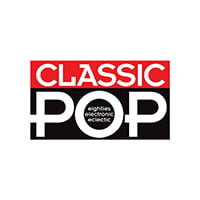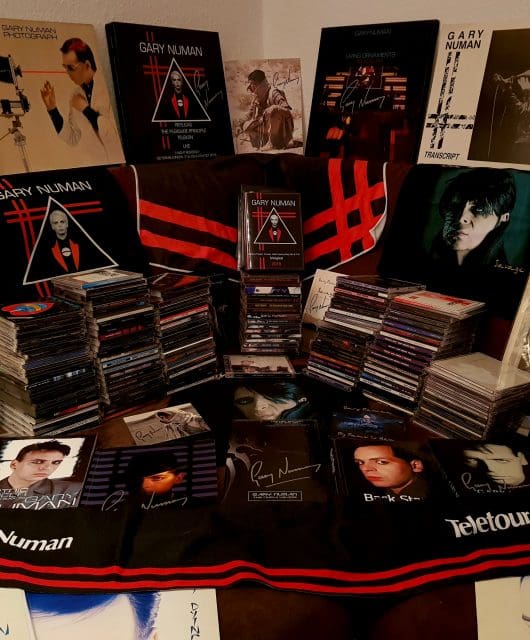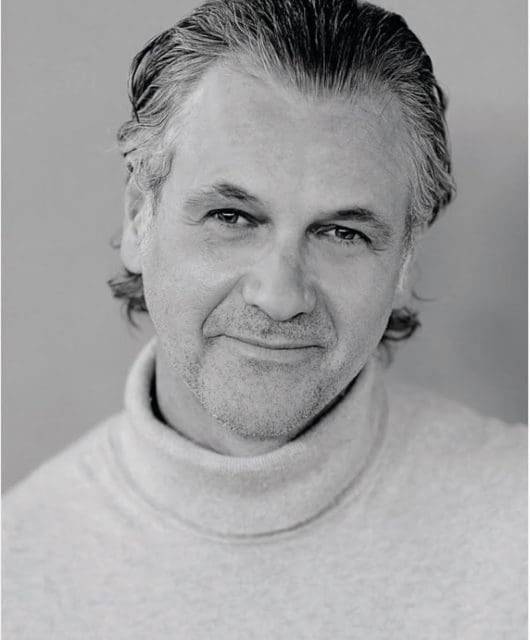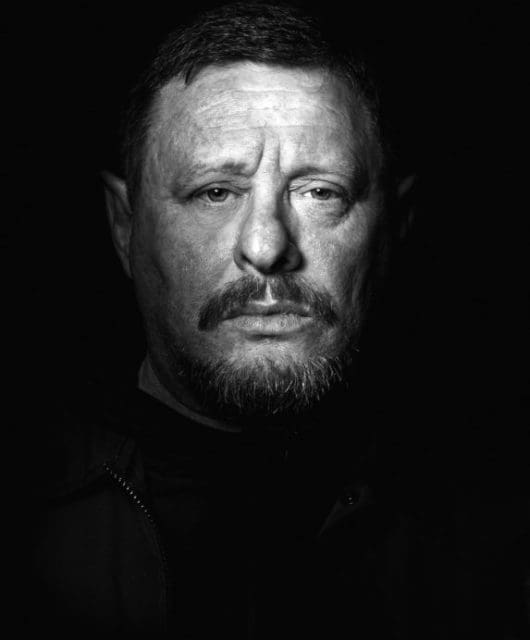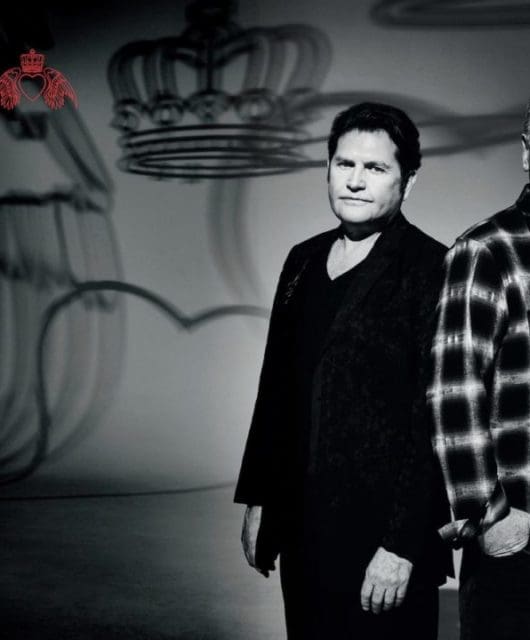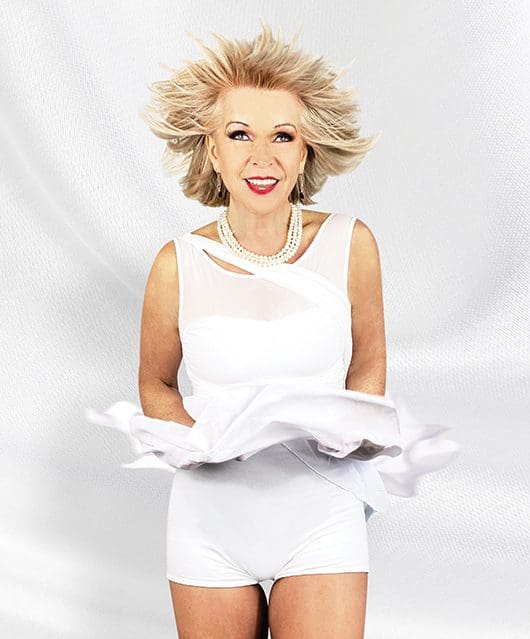The resurrection of Alexander O’Neal
By Classic Pop | October 28, 2022
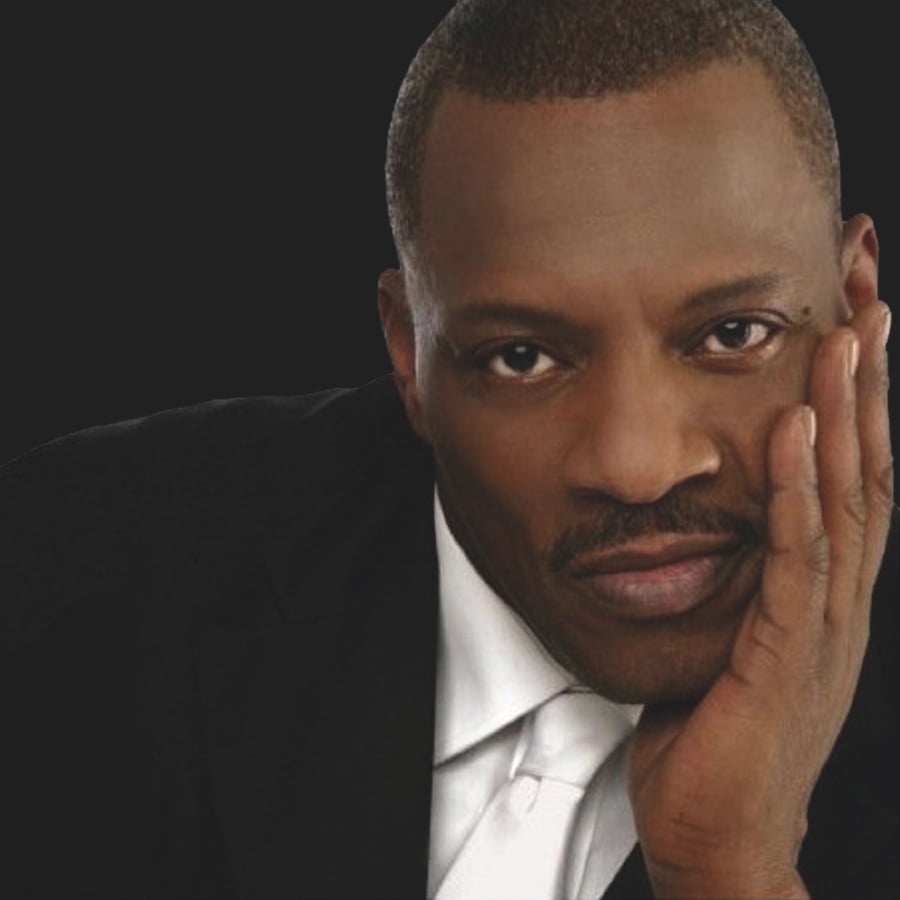
Alexander O’Neal was sacked by Prince, only to find fame and lose it all in an orgy of decadence. But in 2018, he was back with a new album, Resurrected. “I’m just taking care of my family and doing life,” he told David Burke
I think you can read a lot into the title!” laughs Alexander O’Neal when asked about Resurrected, his first album of brand new material in seven years.
It follows Hearsay 30, the triumphant re-recording of Hearsay, his landmark 1987 release which spawned the hits Fake, Criticize and the two-hander with Cherrelle, Never Knew Love Like This.
The Mississippian who’s still going strong into his 60s, promises that Resurrected is unprecedented in the O’Neal canon, “totally out of my comfort zone”, containing as it does elements of the blues, jazz, pop and even folk. Yep, you read it right.
“I’m still trying to keep the R&B Alexander O’Neal inside it. I co-wrote all these songs, every one. It’s just stuff that I really wanted to get out.
“I just put out my autobiography, All True, Man, and this album – even though we didn’t plan it that way – it came out like the book.
“A lot of it is my life story. We have songs about my upbringing in Mississippi, the stuff we had to go through with the Ku Klux Klan down there.
“We have a concept about the album – it’s not like we do a bunch of songs together and hope they fit. We actually orchestrated this whole concept. I really enjoyed having the freedom of being part of this project. It’s one of the best pieces of my career.”
A case of reinvention
O’Neal sounds as though he’s been mulling over his legacy, and that he wants to exert some influence over it while he still has time.
“I don’t like being predictable. It’s fine being known as a great R&B singer, but I’d like to be known as a great singer. This is what I do. And I still have another set of milestones to go, things to accomplish, and that’s what that resurrection thing is all about – daring to try to reinvent your career.”
As with Hearsay 30, he is backed on Resurrected by Mancunian outfit Mamma Freedom. They share the same manager, so it seemed like good sense to pool their artistry.
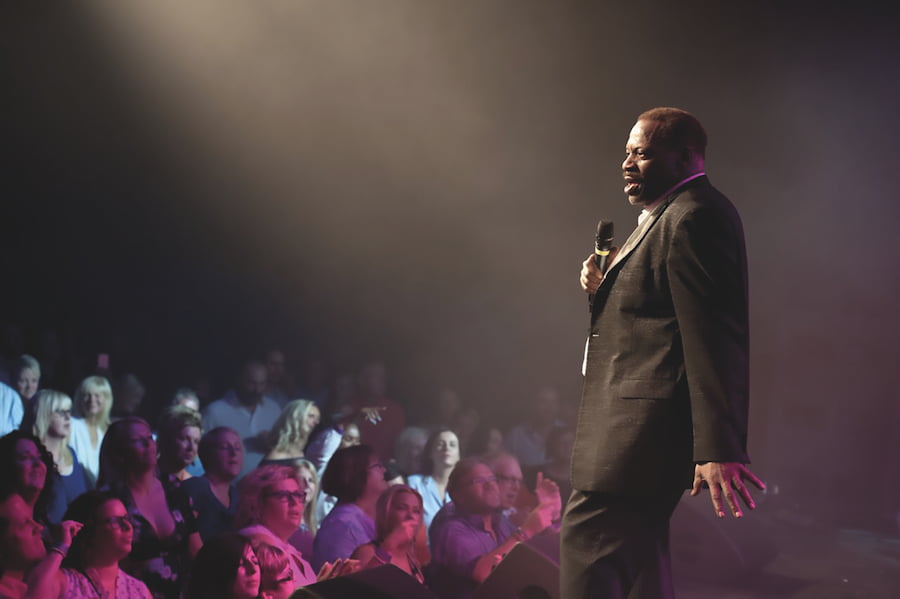
“It was one of the best collaborations I’ve experienced in my career,” he says of Hearsay 30.
“They’re great guys. A lot of great bands and artists have come out of Manchester, like Oasis and my good friend, Russell Watson. So that was a great honour for me to work with them. They have the passion.
“We talked about the album and the way I wanted to do it, and they gave it to me just the way I described it – a lot of real horns and other different elements that they brought to the party.”
The Jimmy Jam and Terry Lewis-produced original was O’Neal’s apotheosis, the point at which commercial success and critical acclaim converged. So why revisit Hearsay at all?
“It was a great challenge. I’m still singing in the same key I sang in 30 years ago. I wanted to put a new twist on things, do something I’d never done before and work with a new crew.
“When you record an album with producers, they’re producers. It’s different when you record an album with a band. And this was recorded with a band.
“The theory came from my live show. It was like the other Hearsay album was Alexander O’Neal the young man, now it’s Hearsay all grown up.
“So we added a different twist to the music, put some different kinds of backgrounds on it. But all the lyrical content and the structure of the songs remain the same.
“There wasn’t anything about the original I didn’t like, but this was more personal, with a lot more passion in it. The other one was commercial to me. It was a great job for what it was.”
His Royal Purpleness
A great job indeed, especially when considered in the context of what happened six years before Hearsay when O’Neal drifted into Prince’s rarefied orbit.
“I started recording with Prince, being the lead vocalist for a band [The Time]. We recorded maybe three or four songs, and then I got fired before I got hired – almost in the same breath!
“Prince was a young man, in his early twenties – he might have been a great artist, but that doesn’t make him a great man, does it? Consequently, it didn’t work out.
“But good things come out of bad situations a lot of times, just with a little patience. I think that we all have Prince to thank for our careers in one way or another, especially coming out of the Minneapolis crew.”
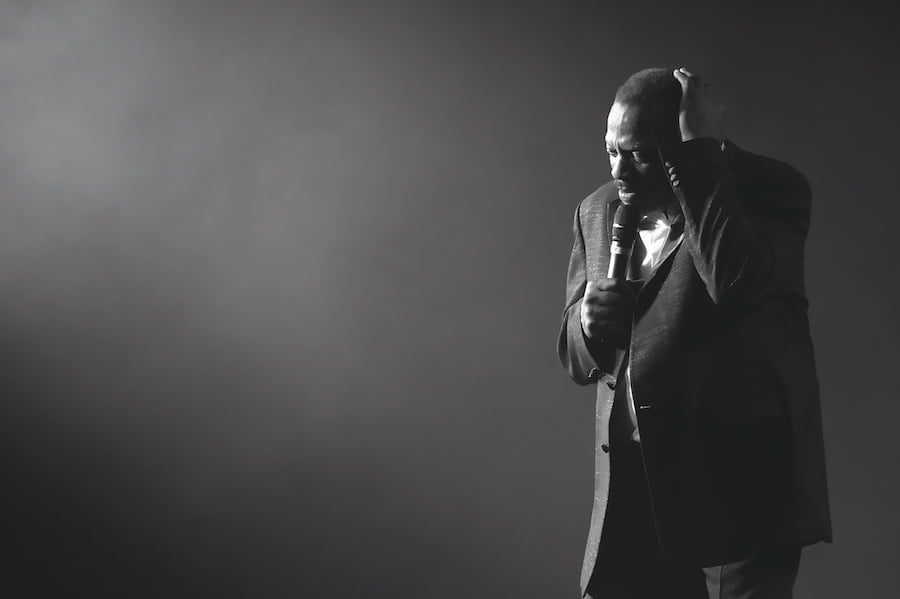
Hang on, let’s back up a bit. Fired before he was hired?
“I was asking questions about the financial aspects of the business venture. And I guess he felt he didn’t have to deal with that. He was like, Prince, alright? It was just typical star shit.
“‘Here’s the bottom line – I’m Prince. You have 100 per cent of nothing, I’m offering you 50 per cent of something. So I don’t have to discuss any terms or anything. You just do what I say you do and you’re going to be OK’.
“Well guess what? I’m not the following kind of guy, I’m not the ‘do what you say I do’ kind of guy – you need another type of guy for that. So I couldn’t do that.”
The story goes that Prince wanted to hire Flyte Tyme – the band which included O’Neal, Jimmy Jam and Terry Lewis – but without the drummer Garry ‘Jellybean’ Johnson.
“I started asking questions about Jellybean. He was going to hire all the band except him. I said, ‘What about Jellybean?’ Morris Day was going to be the drummer. Morris ended up being the frontman.
“So when Prince fired me, he said, ‘I’ll tell you what – you’re so concerned about Jellybean, how about we keep him’. That’s nasty thinking, right?
“He said, ‘Since you’re such a smartass, Mr O’Neal, how about we get rid of you, put Morris upfront where you were going to be, then we’ll hire the band from right up under you, take your band. Now Jellybean’s in and you’re out. Are you happy about that?’ That was very painful.”
Nasty split
O’Neal admits he harboured a great deal of animosity towards Prince after his ignominious expulsion from the diminutive one’s realm, but was “smart enough” to realise that he had to subdue his enmity in order to sustain his own journey.
“We had a saying in the Minneapolis music scene – if you can’t say anything good about somebody, don’t say anything at all. Fortunately for me, I didn’t say anything at all, I didn’t bad-mouth my friends.
“Then Jimmy Jam and Terry Lewis, who had been out in California, came back to Minneapolis. They got fired by Prince as well.
“They were just beginning their producing careers. I was playing downtown in a club called the Chicago Bar.
“They came to see me and said, ‘As soon as we get our feet firmly on the ground in the industry, we’ll come back and get you a deal’. About a year or so later, they came back and the rest is history.”
O’Neal isn’t just referring to the unfolding of his own story, but that of Jam and Lewis, who went on to clock up more Billboard No.1s than any other songwriting and production team ever, for the likes of Janet Jackson, Human League, George Michael, Boyz II Men and Mariah Carey.
“It’s great when you work with producers that know you and wrote material specifically for Alexander O’Neal – they weren’t just a batch of songs lying around. Most of the songs I’ve ever done with them, they were written for me. That made the world of difference.
“But working with guys who you worked with in a band, that know you, is a beautiful thing, as much as having all that success – that didn’t hurt!”
Jam and Lewis helmed O’Neal’s eponymously-titled debut, which connected with British record buyers more than their American counterparts. It peaked at No.19 and gave him his first Top 20 placing with the single, If You Were Here Tonight.
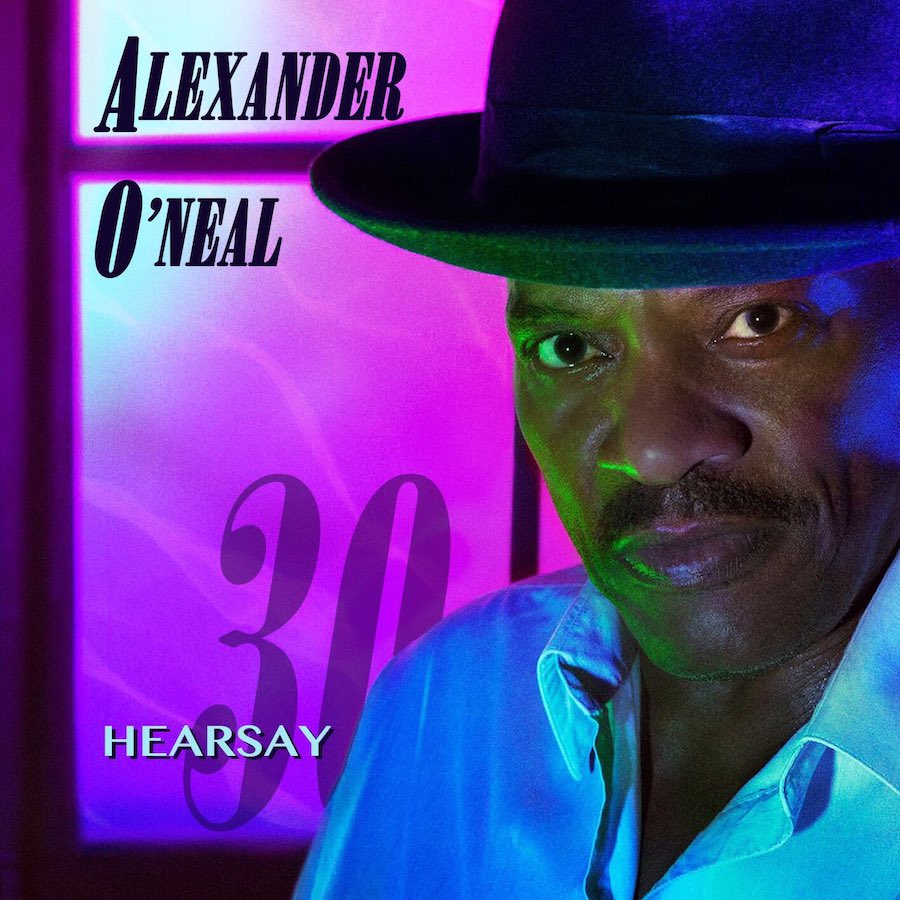
“I knew I had a great chance of it being successful because of all the hits they [Jam and Lewis] had had. I knew that I was in the big leagues. I figured if I had a chance to compete in the big leagues, I’d do OK.
“I figured if I was good enough to be fired by Prince, I must be good enough for the music industry, right?
“They were central to my success, but I was central to theirs, too – I brought a lot to their party. Cherrelle and I were the first big smash they had.
“And then came Janet and Human League and all the rest of them. We had a wonderful collaboration. It’s great to be in a career and then in a family camp.”
O’Neal and Cherrelle broke the UK Top 10 with Saturday Love, and reached No.2 in the US R&B charts – a feat they later repeated with Never Knew Love Like This.
“We pretty much describe what we do as magic. We had the right songs, we had the right producers – Jam and Lewis put us together. We had the right elements. I guess it was timing, too. Our time was right. We hadn’t had a successful duo like that for a while.
“Actually in Vibe magazine, Saturday Night was voted the No.1 duet of all time, above Marvin Gaye and Tammi Terrell and all them. We still do shows together all over the world.”
Golden years
O’Neal reflects on the 80s as “the last golden age for great music, not only R&B”. He is less enamoured with the millennial scene.
“That old saying, ‘They don’t make them like they used to’ – that’s damn true these days. Everybody’s trying to figure out how to be unique. But in the 80s, we were unique. Just great music. Now everything is sampled and stuff.
“Modern technology is wonderful for enhancing music, but it is not the music. So when you’re making these songs, and getting beats out of a computer, and putting your lyrics on it, or putting your rap on it and calling it a song, I’m still waiting on the rest of the track!
“Far be it for me to begrudge anybody in the industry who gets success, though. If you can be successful doing anything in the music industry, or whatever you do, more power to you.”
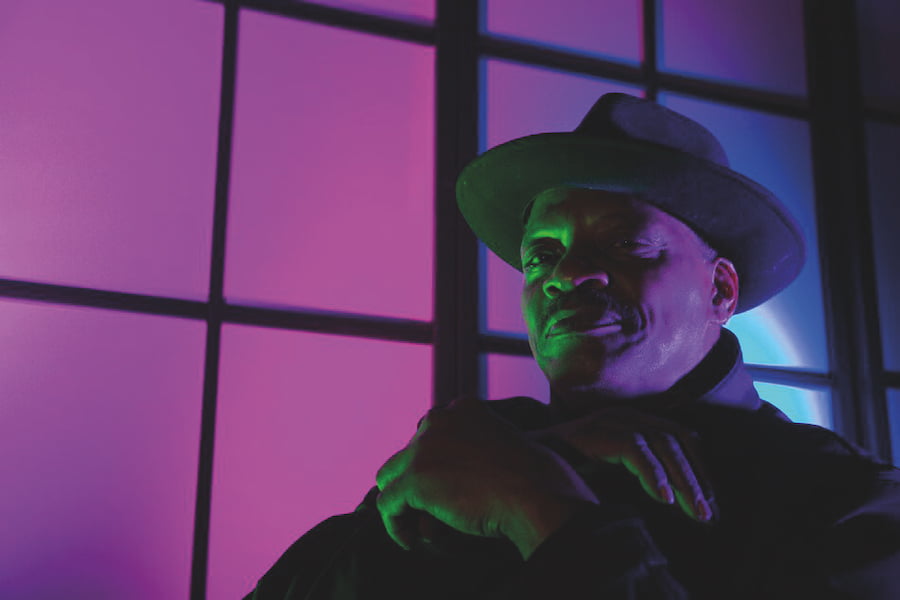
When he was in his pomp, Alex moved in the same stratosphere as other powerhouse vocalists like Luther Vandross and Whitney Houston.
“Luther was the black Pavarotti of our time. He was fabulous and a great statesman for R&B music. Luther had more success in America than I did. Both of us were with the same company for five years, but I didn’t have to worry about competing with Luther because I was Alex, OK? And I was going to grow with Alex.
“Whitney was a natural star with natural talent. She was more friends with Cherrelle – I just came by way of. But we had some encounters together and got to know each other sometime before she passed.
“I still don’t understand the circumstances surrounding her death. It left me confused. I still don’t know how to accept it, but it’s life and I have to move on.
“But I never would have thought that Prince, Whitney, Michael Jackson and Luther, too, would be gone – I was shocked when Luther died. But that’s life.”
With so many of his contemporaries gone, O’Neal is proud to be still standing, reasoning that he must have astutely navigated his way through the pitfalls of fame.
“You go through those things, especially in the music industry, but if you’re fortunate enough you can build some foundation where you can learn from your mistakes, and maybe even do better.”
Addictive personality
And what lessons have accrued from O’Neal’s well-publicised battles with drugs, for example? It was only a couple of years ago when he confessed to a British tabloid that he has struggled with addiction for three decades.
“I really don’t care what people think about me. I’m just trying to be the best Alex that I can be every day. I don’t have to live in someone else’s description of me.
“I’d like to be seen as a straight-up guy. I think people see me as that. I pretty much try to speak my mind. When I’m being opinionated about something, I base it on facts.
“A lot of people have betrayed me and put me in enough situations, especially with the drug scene and all that shit, trying to make me the poster child for drugs.
“I ain’t no damn poster child for drugs. I’m not the first one that’s been in this shit and I won’t be the last, OK? And there are lots more people with lots more success than I’ve had, that have come through what I’ve come through, so I don’t worry about those kind of things. I don’t have anything to hide.
“There’s nothing new about my life. My situation is not going to change. An alcoholic doesn’t stop being an alcoholic because they’ve stopped drinking. They’re still an alcoholic.
“You just carry on with your life. You can’t let people, and how they feel about you and stuff like that get to you…
“I think most of the people, especially my fans, they know that I’m a stand-up guy, but I think they sense that I’m also a very good man. That’s what I strive to be. A good person.
“Let me tell you something, I wouldn’t hurt anybody intentionally, because I can do enough damage to myself for a lifetime.”
These days, O’Neal prefers to maintain a certain equilibrium and keep his eyes on the prize. The body, he acknowledges: “belongs to Alex, but obviously the voice belongs to God, because most days it’s still pretty damn good!
“So for me, just being blessed, 30, 40 years in this industry, using my voice, to still be able to do the things that it appears I can do, from the recording to live performances, I am so thankful.
“This Resurrected album is definitely one of the greatest things that I’ve ever done – that Alex has ever done. The two Alexes got together and put our heads together, and it’s a hell of a project.
“I don’t know how much more of this I’m going to do, but this is my big go-get-‘em-boy.”
- Want more from Classic Pop magazine? Get a free digital issue when you sign up to our newsletter!
